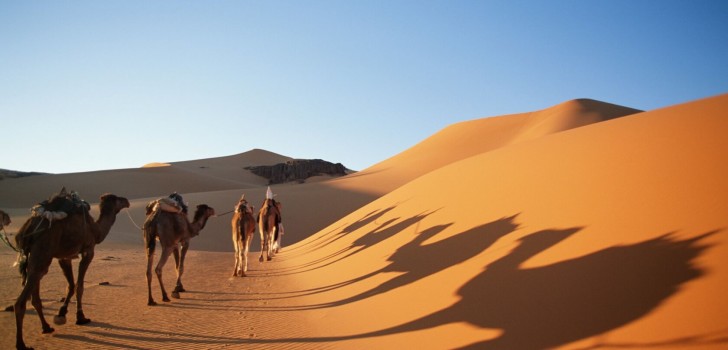In order to stop the Sahara Desert from slowly spreading farther south into Africa, a number of countries are building a “Great Green Wall.” The purpose of the project is to stop the desert from encroaching into land used for farming. The Great Green Wall consists of an arc of plants and trees planted across a swath of Africa. The success of the project depends on about a dozen countries working together to commit to funding and cultivation.
The plan was launched in 2007 and the trees and plants will run 4,350 miles across Africa from Senegal to Djibouti.
The nine-mile wide wall of vegetation is a part of a larger initiative geared towards helping reduce frequent winds blowing sand and dust, slowing the degradation of land and the encroaching desert, and improving the health of those living close to the desert.
Currently, Senegal is the furthest along in the project and over 99,000 acres of plants and trees have been planted along a track of 93 miles. It will eventually extend to 340 miles and cover almost 2 million acres.
Aissata Ka, a young woman who lives in northern Senegal, is very grateful for the project and notes that, “Agriculture is [now] easier for us. With livestock, the herd can die at any moment, and you are then condemned to live as a nomad. Here, with agriculture, we don’t need to move.”
Ousseynou Toure with the Program of Local Development in Senegal added that the Great Green Wall “has also helped the health of children by reducing the dust and winds.”
Toure noted that land degradation must be stopped in order to preserve the climate’s natural ecosystem. He further stressed that the ambitious project must be tangentially linked with a country’s social services program so that the gains can be maintained.
Toure pointed out that if one country’s goals and/or policies shift and it does not maintain its section of trees, neighboring countries will be impacted.
The project was launched by African leaders and is strengthened through intergovernmental cooperation and with support from organizations such as the United Nations.
Mohamed Adow, senior climate change adviser for Christian Aid, says that, “Selecting the right species (of trees and plants) and developing the right community-based forest management systems are vital to avoid simply ending up with a line of forest plantations that are resented by local people and subject to illegal logging and wood collection.”
Stay Connected